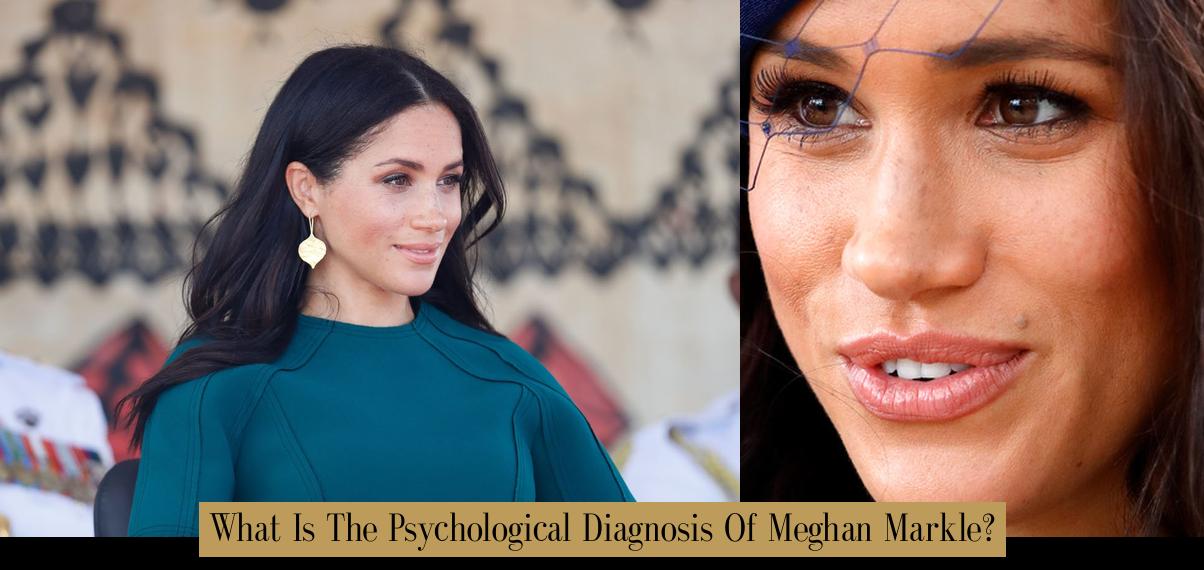What is the Psychological Diagnosis of Meghan Markle? (Or, Why You Should Never Diagnose People Over the Internet)
Okay, let’s get this out of the way: I’m not a psychologist, and neither are you, dear reader. So, before we delve into the juicy world of diagnosing a public figure, let’s remember: armchair psychology is about as reliable as a used car salesman’s promise of “no hidden fees.”
That being said, the internet, fueled by gossip and the insatiable hunger for “tea,” loves a good psychological diagnosis. Meghan Markle, the Duchess of Sussex, has been subjected to a whole lot of it. The whispers, the analyses, the armchair experts – it’s enough to make you wonder if she’s actually a royal or a psychological case study.
So, what’s all the fuss about? Well, let’s break it down, shall we?
The “Princess Syndrome” and Other Fairy Tale Woes
One of the more popular diagnoses thrown around is the “princess syndrome.” Now, this isn’t an official medical term, but it refers to an individual who exhibits behaviors associated with fairy tale princesses – a desire for a grand life, a sense of entitlement, and a longing for a charming prince to sweep them off their feet.
While it’s tempting to point fingers at Meghan and say, “Aha! She’s got the syndrome!” remember that “princess syndrome” is more of a cultural phenomenon than a psychological disorder. It’s about how we perceive and project expectations onto individuals, particularly women. It’s not something you can diagnose based on a few interviews or media appearances.
The “Bi-racial Identity” Struggle
There’s no denying that Meghan has spoken openly about the challenges of her biracial identity. She’s described feeling caught between two worlds, navigating the complexities of racial ambiguity. This isn’t a mental disorder; it’s a lived experience. It’s about navigating the complexities of identity in a world that often forces people into binary categories.
The “Enneagram Type 3”
Another label thrown around is the “Enneagram Type 3,” often referred to as “The Achiever.” This personality type is characterized by ambition, drive, and a focus on success. While it’s tempting to see this as a perfect fit for Meghan, remember that the Enneagram is a system of personality typing, not a diagnostic tool. It’s about understanding how individuals approach the world, not about labelling them with a disorder.
Mental Health and the Public Eye
Meghan has been incredibly open about her struggles with mental health, particularly during her time in the royal family. She’s spoken about feelings of isolation, depression, and suicidal ideation. While it’s important to acknowledge these struggles, it’s also crucial to remember that mental health is a spectrum.
It’s not appropriate to diagnose someone based on their public statements. Mental health is complex and nuanced. It’s not something you can diagnose with a quick Google search or a few news articles.
The Danger of Diagnosing from Afar
Let’s be clear: diagnosing someone without proper training and evaluation is unethical and potentially harmful. It reduces complex human experiences to simplistic labels and ignores the individual’s unique story. It’s like trying to understand a symphony by listening to only a few notes.
The Reality of Meghan’s Story
Meghan Markle is a real person with a complex life. She’s been subjected to intense scrutiny and relentless media attention. It’s understandable that she might experience stress, anxiety, and even sadness. But instead of focusing on diagnosing her, perhaps we should consider the systemic issues that contribute to her struggles: the relentless pressure of the spotlight, the racist and sexist criticism she’s faced, and the immense burden of conforming to a rigid institution.
A Final Thought
Let’s leave the armchair diagnoses to the people who actually have a license to practice. Instead, let’s focus on understanding the complexities of human experience, the power of empathy, and the importance of treating each other with respect and dignity.
Instead of trying to diagnose Meghan, perhaps we should ask ourselves: what can we do to create a more compassionate and understanding world, one where people feel safe to share their struggles without fear of judgment? That’s a question we can all ponder, and a goal we can all strive for.
